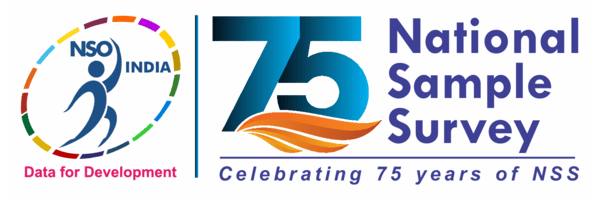Interviewer instructions
A person may attend more than one course simultaneously. In this item, the number of such courses is to be recorded. A course is
a) a structured educational programme having a specified syllabus, duration, level, etc.
and it should
b) necessarily involves appearing in some kind of examination/performance appraisal for getting the
degree/diploma/certificate or advancing to the next class/level.
Depending upon the subjects covered and the mode of instruction, the courses can be categorised broadly
as
(a) general,
(b) technical/professional and
(c) vocational.
For vocational courses, only those courses of duration 3 months or more should be considered.
Moreover, for the purpose of this survey, only those courses covered under the definition of 'education' in
the paragraph below should be considered. Curriculum in art, music or of similar nature conducted by individuals in their houses or unrecognised/ unaffiliated
institutions or classes taken by private tutors should not be considered as a “course”.
The coverage of the 'education' includes:
I. School education including those under Education Guarantee Scheme (EGS) commencing from class I to X
or XII, as the case may be, irrespective of the recognition status of the educational institution,
II. Higher secondary / Pre-university education leading to certificate/ diploma/ degree etc. It also includes
enrolment in private unrecognised institutions, which have regular classes and following the syllabus and
pattern of the education as in recognised schools or colleges and which sponsor students for public
examinations as private or external candidates,
III. General University education, whether full time or part time, leading to certificate/ diploma/ degree etc. The
Universities not recognised by University Grant Commission will not be covered,
IV. Correspondence courses conducted by Universities, Deemed Universities or Institutions, authorised by
competent authorities for awarding regular degrees or diplomas or certificates,
V. Higher secondary / Pre-university / Under-graduate/ Post-graduate / Professional/ Technical education
leading to certificate/diploma/degree etc. conducted by recognised open university/schools,
VI. Technical or Professional courses, leading to degree/diploma/certificates, conducted by Universities,
Deemed Universities or institutes like, National Institute of Fashion Technology, National School of Drama,
Satyajit Ray Film and Television Institute, Film and Television Institute of India, Lok Nayak Jayaprakash Narayan
National Institute of Criminology and Forensic Science, etc. or Institutions, authorised by competent authorities
like All India Council of Technical Education (AICTE), Medical Council of India (MCI) etc.,
VII. Professional courses conducted by Institutes like The Institute of Chartered Accountants of India, The
Institute of Cost and Works Accountants of India, The Institute of Company Secretaries of India, Actuarial
Society of India, etc.,
VIII. All types of vocational courses of duration three months or more
· , conducted by Institutions like Industrial Training Institute (ITI), National Vocational Training Institute, Regional
Vocational Training Institutes,etc., authorised by competent authorities
IX. All the courses at primary level and above, whether recognised or not, conducted by recognised
educational institutions and which are not covered under above-mentioned categories.
The following courses shall be specifically excluded:
· Art, music and similar type of courses conducted by individuals in their houses or unrecognised/ unaffiliated
institutions,
· Classes taken by Private tutors,
· Education in nursery/Kindergartens/Preparatory levels except for their enrolment statuses and dropout /
discontinuance statuses
·
· The non-formal system of education being implemented through various programs by government or other
agencies except for their enrolment statuses and dropout / discontinuance statuses

